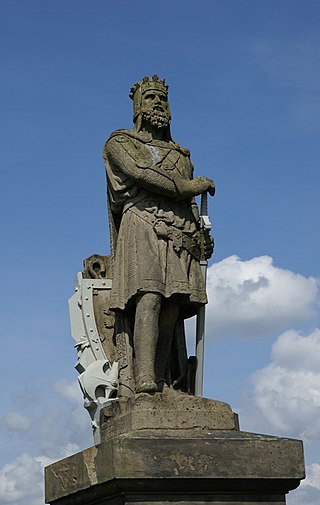See also
- DeQuincy, Louisiana, U.S., a city
- DeQuincy High School, a high school in the city
- Quincy (disambiguation)
De Quincy, De Quincey, DeQuincy, or DeQuincey is a name. It can occur as both a masculine given name and as a surname. Geographically, it can be found in the United Kingdom, France, the United States, and New Zealand.
Notable people with this name include:
Clinton is an English toponymic surname, indicating one's ancestors came from English places called Glympton or Glinton. Clinton has frequently been used as a given name since the late 19th century. Baron Clinton is a title of the peerage in England, originally created in 1298.
John or Johnny Graham may refer to:

Saer de Quincy, 1st Earl of Winchester was one of the leaders of the baronial rebellion against John, King of England, and a major figure in both the kingdoms of Scotland and England in the decades around the turn of the twelfth and thirteenth centuries.

Roger de Quincy, 2nd Earl of Winchester, hereditary Constable of Scotland, was a nobleman of Anglo-Norman and Scottish descent who was prominent in both England and Scotland, at his death having one of the largest baronial landholdings in the two kingdoms.

The name Robert is an ancient Germanic given name, from Proto-Germanic *Hrōþi- "fame" and *berhta- "bright" (Hrōþiberhtaz). Compare Old Dutch Robrecht and Old High German Hrodebert. It is the second most frequently used given name of ancient Germanic origin. It is also in use as a surname. Another commonly used form of the name is Rupert.

Edmund is a masculine given name in the English language. The name is derived from the Old English elements ēad, meaning "prosperity" or "riches", and mund, meaning "protector".
George Hamilton may refer to:

William III de Ferrers, 5th Earl of Derby of Chartley Castle in Staffordshire, was an English nobleman and major landowner, unable through illness to take much part in national affairs. From his two marriages, he left numerous children who married into noble and royal families of England, France, Scotland and Wales.

The Lord High Constable is a hereditary, now ceremonial, office of Scotland. In the order of precedence of Scotland, the office traditionally ranks above all titles except those of the royal family. The Lord High Constable was, after the King of Scots, the supreme officer of the Scottish army. He also performed judicial functions as the chief judge of the High Court of Constabulary. From the late 13th Century the Court – presided over by the Lord High Constable or his deputies – was empowered to judge all cases of rioting, disorder, bloodshed and murder if such crimes occurred within four miles of the King, the King's Council, or the Parliament of Scotland. Following James VI's move to England, the jurisdiction of the Lord High Constable was defined in terms of the "resident place" appointed for the Council.
Patrick IV, 8th Earl of Dunbar and Earl of March, sometimes called Patrick de Dunbar "8th" Earl of March, was the most important magnate in the border regions of Scotland. He was one of the Competitors for the Crown of Scotland.
Farquhar is a surname of Scottish origin, derived from the Scottish Gaelic fearchar, from fear ("man") and car ("beloved"). Farquharson is a further derivation of the name, meaning "son of Farquhar". The name originated as a given name, but had become established as a surname by the 14th century.
John Stewart may refer to:
Melville is a surname and a given name.
Lindsay is both a Scottish surname and a given name. The given name comes from the Scottish surname and clan name, which comes from the toponym Lindsey, which in turn comes from the Old English toponym Lindesege for the city of Lincoln, in which Lind is the original Brittonic form of the name of Lincoln and island refers to Lincoln being an island in the surrounding fenland. Lindum Colonia was the Roman name of the settlement which is now the City of Lincoln in Lincolnshire. Lindum was a Latinized form of a native Brittonic name which has been reconstructed as *Lindon, which means "pool" or "lake" and refers to the Brayford Pool.
Colin is an English-language masculine given name. It has two distinct origins:
Elliot is a personal name which can serve as either a surname or a given name. Although the given name has historically been given to males, females have increasingly been given the name as well in the United States.
Hugh is the English-language variant of the masculine given name Hugues, itself the Old French variant of Hugo, a short form of Continental Germanic given names beginning in the element hug- "mind, spirit".
Quincy, formerly de Quincy, is usually an English toponymic surname of Norman origin, but may also be a given name. For members of the prominent American political family from the mid-17th century to the early-20th century, see Quincy political family.
Arabella is a female given name, possibly of Greek, Latin, or Celtic origin.